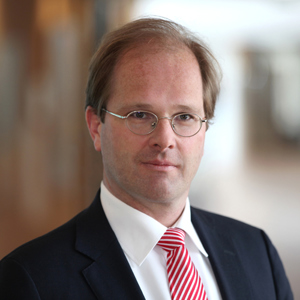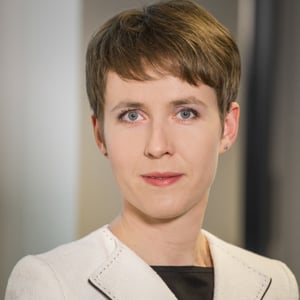In order to ensure (to the extent possible) the continuation of supply of medical devices and PPE to hospitals, pharmacies and licensed healthcare practitioners, several regulatory measures were taken, both at the EU and national levels.
1.Temporary relaxation of conformity assessment and market surveillance procedures
In view of the exceptional situation caused by COVID-19, the European Commission published a recommendation (Recommendation 2020/403 of 13 March 2020) on conformity assessment and market surveillance procedures in the context of the COVID-19 threat.
For PPE products, the European Commission accepts that such products can be manufactured following technical solutions other than harmonised standards (e.g. following the WHO recommendations on the appropriate selection of PPE), provided that such technical solutions ensure an adequate level of protection corresponding to the applicable essential health and safety requirements laid down in Regulation (EU) 2016/425.
For medical devices, the European Commission explains that there should be a possibility for EU Member States to authorise derogations from conformity assessment procedures, also when the intervention of a notified body is not required.
In addition, where market surveillance authorities find that PPE or medical devices ensure an adequate level of health and safety in accordance, even though the conformity assessment procedures, including the affixing of CE-marking have not been fully finalised according to the harmonised rules, they may authorise the making available of these products on the EU market for a limited period of time and during which the necessary procedures are being carried out. This means that PPE or medical devices which do not (yet) beat a CE-marking can, for the time being, be put on the EU market. They can also be part of a purchase organised by government authorities, provided that is ensured (i) that they are only available for the healthcare workers for the duration of the current health crisis, and (ii) that they are not entering the regular distribution channels and made available to other users.
In Belgium, the FPS Economy has confirmed that, in view of the exceptional situation, it will indeed take into account deviations from the rules for CE-marking and conformity assessments as described in Recommendation 2020/403:
- It will exceptionally accept FFP2 and FFP3 face masks that do not bear a CE-marking, provided that it is ensured that such products are made available only during the current crisis and do not enter regular distribution channels; but
- For PPE masks, documents such as the EU declaration of conformity and the EU-type examination certificate issued by a notified body must still be present in order to demonstrate the conformity of the products; and
- For the evaluation of the conformity assessment certification of mouth masks, it will also exceptionally take into account other certification or test reports from a third party, according to equivalent international standards or based on other proper and reliable documentation.
In the Netherlands, the Inspectorate of Social affairs and Employment (Inspectie SZW) and the Health and Youth Care Inspectorate (IGJ) also provide space for the marketing of non-CE-market PPE’s due to the coronavirus as long as these materials meet the health and safety requirements. A manufacturer, authorized representative, distributor or importer may submit a request to the Health and Youth Care Inspectorate for placing a class IIA-, IIB-, or III- medical device on the market without CE marking or without having passed the standard assessment procedure. This exception applies as long as there are shortages due to the coronavirus.
In Luxembourg, no official statement has yet been made by the Luxembourg Government in view of the European Commission’s Recommendation 2020/403. Nevertheless, it appears that the health care sector in Luxembourg is currently accepting and using PPE products that are not manufactured according to harmonized standards.
2. Export restrictions for PPE at the EU level
Commission Implementing Regulation (EU) 2020/402 of 14 March 2020 imposes an authorisation requirement on the export of PPE, whether or not originating in the EU, if exported out of the EU. There is however a waiver for EFTA countries (EU 2020/426). The authorisation has to be sought from the competent authority of the EU Member State where the exporter is established.
Exports of certain quantities of specific products can be authorized under specific circumstances, such as to ensure assistance to third countries and depending on the needs of the Member States.
Regulation 2020/402 entered into force on 15 March 2020, the day on which it was published in the Official Journal of the European Union. It applies for a period of six weeks, i.e. until 26 April 2020, and then automatically ceases. The European Commission has meanwhile also issued an accompanying Guidance Note.
3. Additional trade restrictions in Belgium
With regard to intra-EU supplies, which remain unrestricted under Regulation 2020/402, several EU Member States have however issued regulatory restrictions.
In Belgium, the Federal Government imposed a de facto ban by Ministerial Decree of 23 March 2020. This Decree entered into force on 23 March 2020 and remains valid until 22 June 2020.
It aims to reserve a number of specifically listed medical devices (including e.g. surgical masks, screening material, and disinfectant wipes for medical use) and PPE for the Belgian healthcare sector by restricting (or prohibiting) their sale through retail and wholesale channels. Limited exceptions are included, e.g. for sales to companies that need this protective equipment to protect their employees against safety or health risks at work.
Finally, the Decree also provides that the Federal Minister of Public Health is entitled to impose restrictions on the number of transactions, the sales and the sales volume, both for wholesale and retail sales in Belgium, and that government officials may require/order (i) stocks of certain medical devices and PPE to be redistributed, and/or (ii) the confiscation of certain medical devices and PPE at cost price.
4. No additional trade restrictions (so far) in the Netherlands or Luxembourg
At the moment of publication of this article, the Netherlands and Luxembourg do not have specific trade restrictions in place in addition to Regulation 2020/402.
In the Dutch parliament, there are of course discussions regarding the potential threat of a shortage of PPE, which is sometimes accompanied by calls for additional restrictive measures. Despite the pressing nature of the situation, however, the Dutch government seems to be reluctant to impose additional measures, as this could lead to a decrease of foreign supplies and an increase of prices of certain PPE. As Luxembourg relies heavily on medical staff and expertise from neighbouring countries, their reluctance to impose trade restrictions is not surprising either.
5. Competition law aspects
Manufacturers, distributors and purchasers of medical devices also need to take into account that (the usual) restrictions that they face under the EU and national competition legislation continue to apply, albeit with certain relaxations. For example, both suppliers and purchasers of medical devices may be allowed to cooperate in order to prevent or to resolve (threatening) shortages.
In a joint statement, the European Commission and the national competition authorities of the EU as united in the European Competition Network (ECN), express their understanding that this extraordinary situation may trigger the need for companies to cooperate in order to ensure the supply and fair distribution of scarce products. In the current circumstances, the ECN will not actively intervene against necessary and temporary measures put in place in order to avoid a shortage of supply. On the other hand, they indicate that it is of utmost importance to ensure that products considered essential to protect the health of the public remain available at competitive prices. Agreements on pricing, or abusing a dominant position by charging excessive prices, will therefore not be allowed. The ECN points out that the existing rules allow manufacturers to set maximum prices for their products. The ECN believes this could prove useful to limit unjustified price increase at the distribution level.
Contacts
Trade & Customs: Bert Gevers (Belgium), Gerard Kreijen (the Netherlands) and Olivier Coulon (Luxembourg).
Competition Law: Marc Wiggers and Robin Struijlaart.
Life Sciences Regulatory: Stéphanie De Smedt (Belgium), Kim Lucassen and Aurélie Mingels (the Netherlands), and Emilia Fronczak and Finola Exall (Luxembourg).









